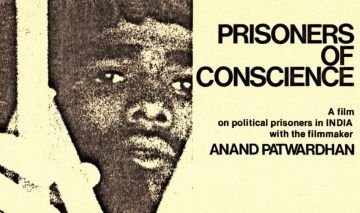William Harris in n + 1:
 Nothing has better testified to the streak of illiberalism still coursing through Indian political life in the years since the Emergency than the documentaries of Anand Patwardhan. His target has shifted: from Gandhi’s supposedly liberal Congress Party to the rise of right-wing Hindu nationalism, now manifested by a BJP government whose prime minister, Narendra Modi, has turned Kashmir into a prison state and begun a mass expulsion of Muslims in Assam. But the form and political sensibility of Patwardhan’s work has remained: an engaged documentarian moving in contraflow to the ideas of the day.
Nothing has better testified to the streak of illiberalism still coursing through Indian political life in the years since the Emergency than the documentaries of Anand Patwardhan. His target has shifted: from Gandhi’s supposedly liberal Congress Party to the rise of right-wing Hindu nationalism, now manifested by a BJP government whose prime minister, Narendra Modi, has turned Kashmir into a prison state and begun a mass expulsion of Muslims in Assam. But the form and political sensibility of Patwardhan’s work has remained: an engaged documentarian moving in contraflow to the ideas of the day.
One story of documentary’s last half-century goes something like this: a once-politicized left-liberal form, associated with social reform and a positivist claim on the truth, faltered in the 1970s under a withering set of critiques. In the US, documentary’s most compelling antagonists were the artists and theorists Martha Rosler and Allan Sekula, memorable for their attacks—lambasting documentary’s penchant for reduction and cliché, its ploy of objectivity, its patronizing passion for social uplift, the way its high-mindedness hid the exploitation of its subjects—but also for their insistence that the ultimate point of critique was documentary’s reinvention, replacing its positivist claim on truth with a Marxist understanding of truth as partisan, as emerging from a particular social position and worldview.
More here.
